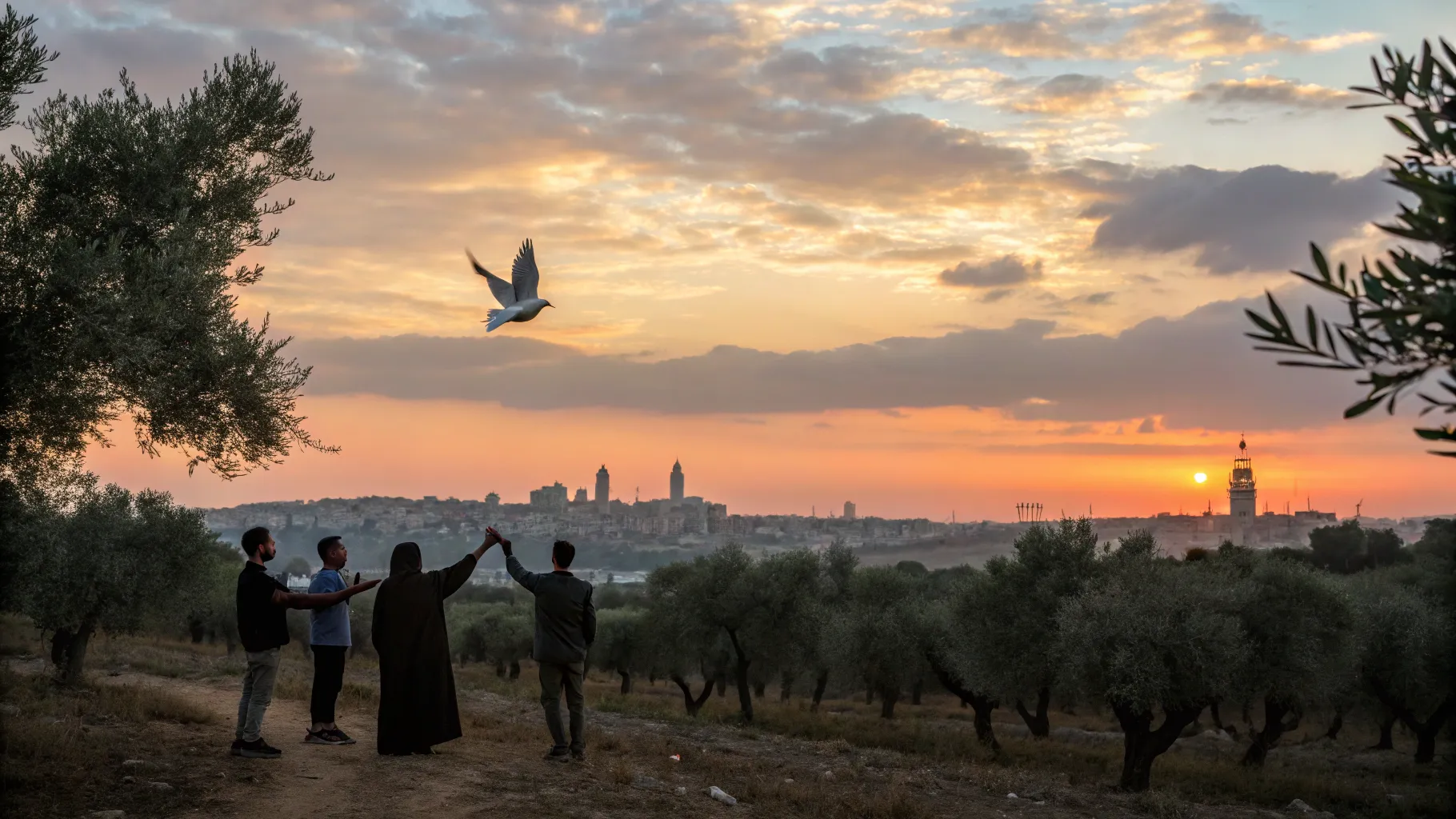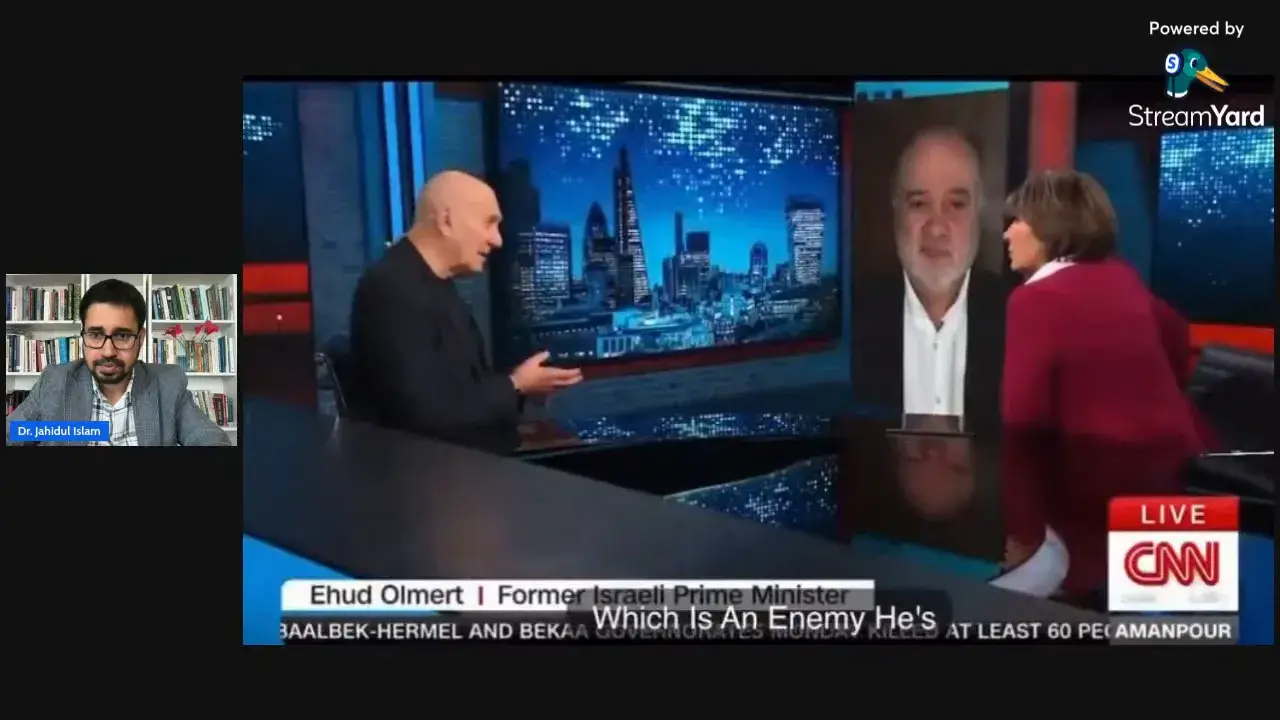
Greetings to all readers! Today, we delve into some of the most significant and hopeful developments unfolding in the Middle East, specifically related to the Gaza conflict, the Palestinian statehood movement, and the daring diplomatic steps led by former US President Donald Trump. These updates come from Turkey Pedia News, providing an insightful analysis of ongoing negotiations and geopolitical shifts that could reshape the region’s future.
🕊️ A Historic Ceasefire and Prisoner Exchange in Gaza
In a groundbreaking diplomatic move, Hamas has agreed to release an American citizen, Alexander Edin, in a goodwill gesture towards Donald Trump. This exchange is part of a larger ceasefire agreement that is set to take effect by the end of the day on Monday. The ceasefire includes allowing humanitarian aid, specifically food supplies, to enter the Gaza Strip, which has been under severe siege due to ongoing hostilities.
This development marks a notable departure from previous negotiations, as the talks have notably excluded Israeli Prime Minister Benjamin Netanyahu, signaling a shift in diplomatic strategy. The discussions, led by Donald Trump’s representatives over five days, have culminated in this promising ceasefire, potentially ending the intense conflict and paving the way for a peaceful resolution.
The ceasefire and prisoner exchange are particularly significant because they bypass traditional Israeli involvement, highlighting a new approach in the peace process that prioritizes direct dialogue with Hamas and other stakeholders.
🌍 The Riyadh Summit and the Vision for an Independent Palestine
Following these developments, a crucial four-party summit is scheduled to take place in Riyadh, Saudi Arabia. This summit will bring together four neighboring countries — including three that share borders with Israel — along with the United States, to discuss the future of Palestinian independence.
The primary focus of the summit is the recognition and establishment of a sovereign Palestinian state. This gathering represents a historic moment, as it involves regional powers uniting to push for Palestinian self-determination, a cause long championed but yet to be realized fully on the international stage.
Supporters of Palestinian independence are encouraged to express their solidarity by commenting “Palestine Zindabad” (Long live Palestine), reflecting the widespread hope for a just and lasting peace in the region.
🤝 Trump’s Bold Diplomatic Maneuver: Sidestepping Netanyahu
One of the most remarkable aspects of this evolving situation is Donald Trump’s decision to circumvent Netanyahu and the Israeli lobby, which traditionally holds significant sway over US Middle East policy. This unprecedented move underscores Trump’s willingness to take bold risks to achieve peace, even if it means sidelining a long-standing ally.
Trump’s approach has stirred significant controversy and tension. Netanyahu has openly warned that if the US unilaterally recognizes a Palestinian state, Israel will respond independently without seeking any external approval. This standoff raises the stakes for both leaders, with the potential for dramatic political consequences — including the possibility of either Trump or Netanyahu losing their positions if no compromise is reached.
These tensions reflect the complex interplay between domestic politics and international diplomacy, showcasing the challenges inherent in resolving such a deeply entrenched conflict.
🇺🇸 The Role of US Envoy Steve Witkoff and Frustration with Israel
Steve Witkoff, the US envoy assigned to mediate the Gaza ceasefire, has expressed deep frustration with Israel’s reluctance to facilitate the release of Israeli prisoners, a key component of peace negotiations. Despite multiple initiatives, Israel has repeatedly undermined efforts to free detainees, prompting the US to pursue negotiations excluding Israeli involvement.
Witkoff emphasized the urgency of achieving a ceasefire, highlighting the humanitarian imperative to stop the bloodshed and enable aid to reach vulnerable populations in Gaza. Hamas’s release of Alexander Edin ahead of schedule is seen as a goodwill gesture aimed at encouraging Israel to reciprocate and support a broader peace process.
However, tensions within Israel remain high. Public protests in Tel Aviv demand the return of prisoners and an end to hostilities, while the government, led by Netanyahu, prepares for a large-scale military operation involving 100,000 reserve troops to launch an offensive in Gaza. Faced with this dual pressure, Hamas’s decision to engage in ceasefire talks signals a strategic move to prevent further devastation.
⚔️ Internal Israeli Divisions and the Threats to Netanyahu’s Leadership
Within Israel, the political landscape is increasingly volatile. Netanyahu faces mounting opposition not only from external actors but also from within his own country. Former Israeli Prime Minister Ehud Olmert and other prominent figures have criticized Netanyahu’s hardline stance, accusing him of being held hostage by extremist factions that prioritize war over peace.

These critics warn that Netanyahu’s aggressive policies, including plans to demolish Palestinian homes and forcibly displace residents from Gaza, are unsustainable and risk isolating Israel internationally. The absence of any country willing to accept Palestinian refugees exacerbates the humanitarian crisis, highlighting the urgent need for alternative solutions.
Moreover, the Israeli public is becoming increasingly aware of the internal threats posed by radical leaders like Bezalel Smotrich and Itamar Ben-Gvir, whose influence complicates peace efforts and fuels conflict escalation.
🌐 Israel’s Isolation and America’s Sole Backing
Following the escalation of conflict on October 7th, Israel finds itself increasingly isolated on the global stage. While Western countries initially rallied behind Israel, the current situation has shifted dramatically, leaving Israel with only the United States as a steadfast ally.
President Trump has severed communications with Netanyahu for over a week, convinced that Netanyahu does not genuinely seek to end the war. Trump’s frustration stems from Netanyahu’s continued military operations not only in Gaza but also in Yemen and potential plans against Iran, all conducted without external consent.
Trump’s diplomatic strategy now involves excluding Netanyahu from negotiations, fostering direct talks with Hamas and Iran, and leveraging the influence of key Muslim countries — Egypt, Qatar, Turkey, and Saudi Arabia — to mediate peace.
🌟 The Crucial Role of Muslim Countries in Middle East Diplomacy
Recent developments have seen Egypt, Saudi Arabia, Turkey, and Qatar playing pivotal roles in facilitating dialogue between conflicting parties. These countries have been acknowledged by the US for their efforts in arranging talks and supporting peace initiatives with Hamas, bypassing traditional Israeli channels.
Saudi Arabia, in particular, is spearheading efforts to convince Trump to officially recognize a Palestinian state, offering significant incentives including trillion-dollar investments and economic cooperation proposals. The United Arab Emirates and Qatar have also pledged substantial economic support, aiming to sway US policy towards endorsing Palestinian sovereignty.
This multilateral approach represents a potential turning point in Middle Eastern diplomacy, integrating regional stakeholders into the peace process and applying collective pressure on the US administration to act.
🇺🇸 Trump’s Potential to Influence Israeli Policy and the Question of Control
Despite Israel’s strong lobby in the US, Trump’s business acumen and political resolve position him uniquely to influence Israeli policy. Trump’s team maintains that they remain Israel’s strongest allies, yet there is growing speculation about whether Trump can persuade Israel to accept a two-state solution.
The fundamental question arises: does America control Israel’s actions, or does Israel influence American policy? The reality is likely a complex interplay, with Israel only able to take steps that the US permits. Should Trump choose to exert full pressure, Netanyahu’s political future could be in jeopardy, potentially leading to a leadership change in Israel.
Recent statements from Israeli leaders express frustration with dependence on US security assistance, contemplating a future less reliant on American support. However, experts argue that without US aid, Israel’s security would be severely compromised, underscoring America’s critical role.
🛑 The End of Netanyahu’s Era and the Rise of New Political Forces
Former Prime Minister Ehud Olmert has openly declared that Israel’s greatest threat is not external enemies but the extremist leaders within, who are driving Netanyahu’s policies. The growing opposition coalition within Israel seeks to unseat Netanyahu, viewing his resignation as key to advancing peace and ending the conflict.
If Trump maintains his stance and supports this political shift, the possibility of establishing an independent Palestine increases significantly. This scenario would mark a dramatic transformation in the region’s geopolitical landscape, potentially ushering in a new era of stability and coexistence.
✈️ India-Pakistan Conflict Update and Fighter Jet Analysis
Switching focus to South Asia, recent developments in the India-Pakistan conflict reveal a complex air combat scenario. Both countries have held press conferences emphasizing their respective successes and failures in the aerial engagements.
India claims to have shot down several Pakistani fighter jets, though official confirmation and technical details remain undisclosed. Pakistani officials counter these claims, asserting their air force’s dominance with six enemy aircraft downed and none lost on their side.
The discourse includes a debate over the classification of fighter jets, with Indian forces using the term “high-tech” jets, a non-standard designation in global military terminology. This highlights the propaganda aspects intertwined with modern warfare narratives.
🇧🇩 The Future of Bangladesh Air Force: China or Pakistan?
A pressing question for Bangladesh’s defense strategy concerns the procurement of new fighter jets. Should Bangladesh acquire aircraft from China or Pakistan? Personal observations from military exhibitions reveal stringent security measures around Bangladesh’s current air assets, reflecting their strategic importance.
Despite some analysts downplaying Bangladesh’s air force capabilities, it is crucial to recognize the country’s strategic preparedness and sovereignty efforts. Modernized MiG-29 jets and upgraded F-6 fighters form the backbone of Bangladesh’s aerial defense, supplemented by strategic geographic advantages and allied support.
Moving forward, Bangladesh should consider diversifying its fighter jet acquisitions, including options from Pakistan and China, to strengthen its air defense capabilities. A mix of third to fifth-generation fighters could enhance national security and deter potential aggression.
❓ Frequently Asked Questions (FAQ)
What is the significance of Hamas releasing an American citizen?
This gesture symbolizes a willingness to negotiate and build trust in the peace process, encouraging reciprocal actions from Israel and advancing the ceasefire.
Why is Donald Trump excluding Netanyahu from peace talks?
Trump perceives Netanyahu as an obstacle to peace due to his hardline stance and reluctance to halt military operations, thus opting to engage directly with other stakeholders.
What role will the Riyadh Summit play in Palestinian independence?
The summit aims to unify regional powers and the US in supporting the recognition and establishment of an independent Palestinian state, marking a strategic diplomatic effort.
How isolated is Israel internationally amid the current conflict?
Israel is largely isolated except for US support, as many Western countries reassess their positions in light of prolonged hostilities and humanitarian concerns.
What are the prospects for Netanyahu’s political future?
Netanyahu faces significant internal opposition and pressure from both US and Israeli politicians, with his tenure increasingly uncertain amid calls for leadership change.
How does the India-Pakistan air conflict impact regional security?
The aerial engagements highlight ongoing tensions and the importance of air superiority, influencing strategic calculations in South Asia.
Should Bangladesh prioritize fighter jet procurement from China or Pakistan?
Both countries offer viable options; a balanced procurement strategy involving modern aircraft from both suppliers could enhance Bangladesh’s defense capabilities effectively.
🔚 Conclusion: A Turning Point in Middle Eastern and Regional Dynamics
The current developments in Gaza and the broader Middle East represent a potential turning point, driven by bold diplomatic initiatives and shifting alliances. Donald Trump’s unconventional approach, the active involvement of Muslim countries, and the internal challenges facing Israel’s leadership create a unique window of opportunity for Palestinian independence and regional peace.
Simultaneously, ongoing conflicts in South Asia and strategic defense considerations in Bangladesh underscore the interconnected nature of global security challenges. As these stories unfold, the international community must remain engaged and supportive of peaceful resolutions that respect sovereignty and human rights.
For those who stand with Palestine, expressing solidarity and advocating for justice remains vital. The hope is that through persistent diplomacy, courageous leadership, and regional cooperation, a just and lasting peace will emerge.
Thank you for reading this in-depth analysis from Turkey Pedia News. Stay informed and engaged.